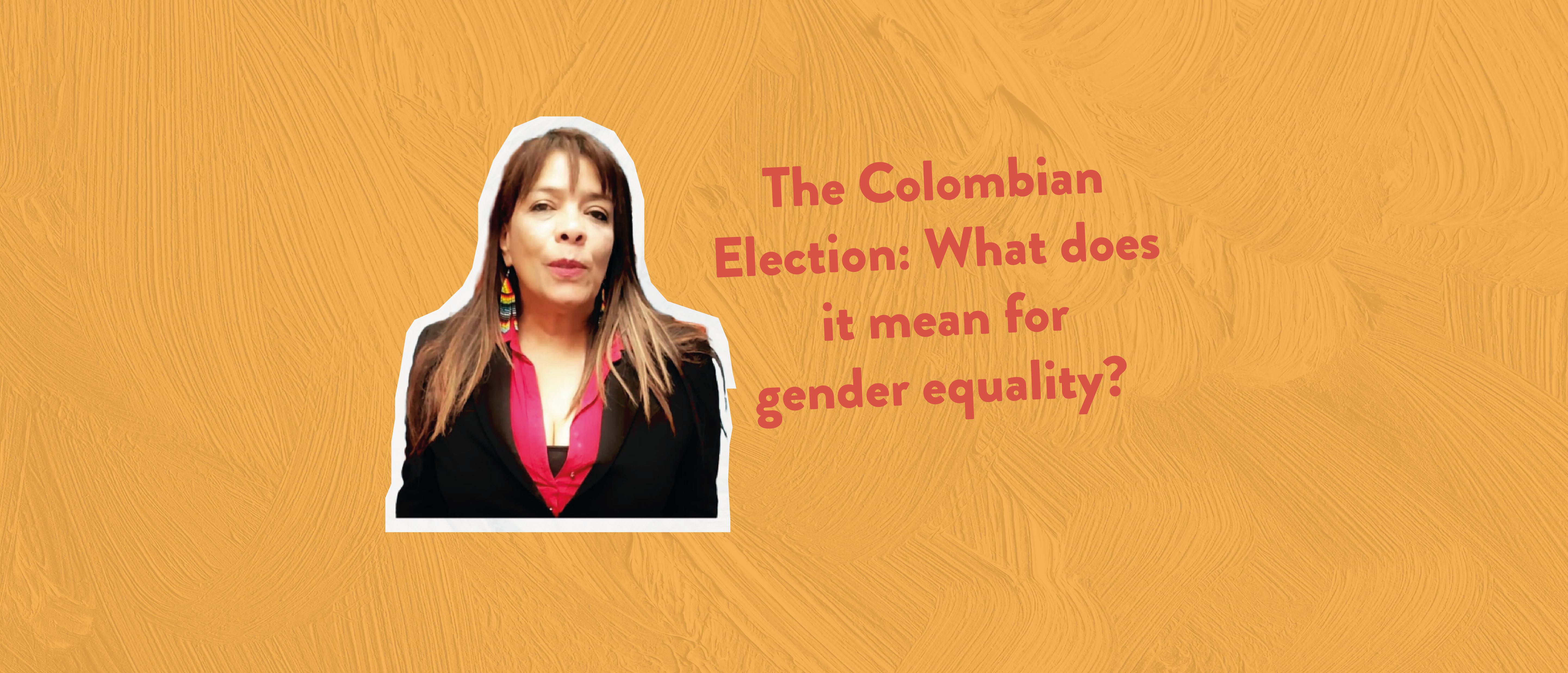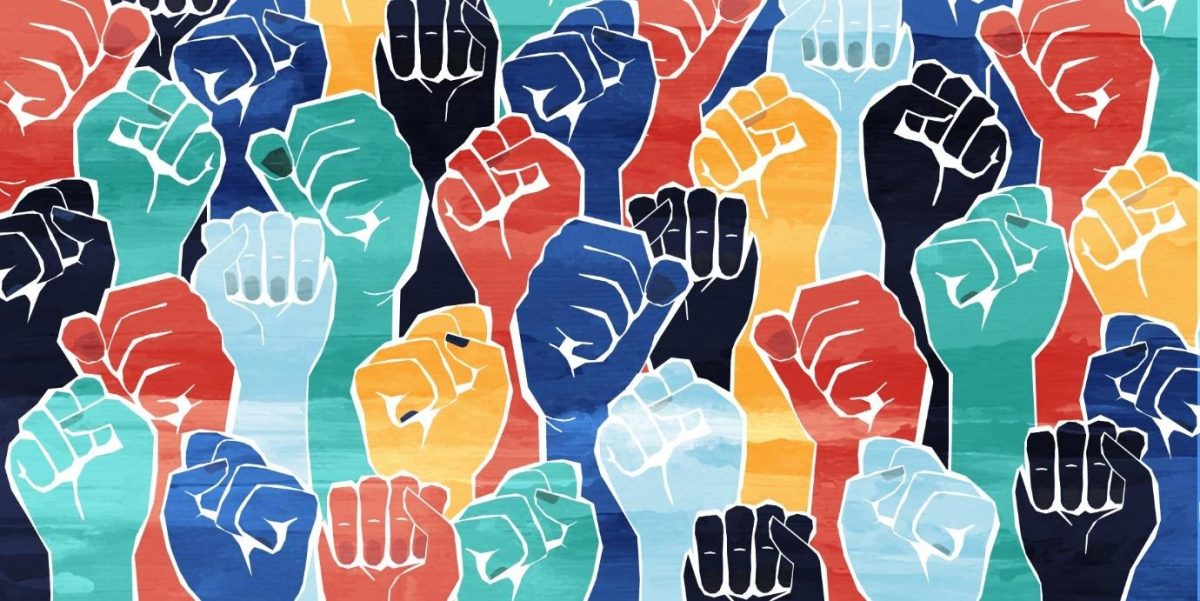A conversation with the National Coordinator of La Ruta Pacifica, Marina Gallego Zapata, on what the recent Colombian election means for peace and equality.
This is the first election of left-wing president and a black woman as vice president. Why are these such significant victories for Colombia?
This election result is very significant as it’s the first time the Left in Colombia have come to power in the 200 years of this republic, so it’s a very new situation that has created a lot of hope in the population, especially in territories most affected by the armed conflict. The fact that Francia Márquez was elected – a black woman who comes from and represents these regions and communities – demonstrates that in Colombia things are moving. People in these regions feel it’s possible for their agendas to be taken into account by this alternative government, whose agenda is to overcome gaps in inequality between the centre and the periphery, which is not peripheral at all but is super important – the Pacific Coast, the Atlantic Coast, the south of the country. The whole border region is still affected by the armed conflict, so the idea of a government that can implement the peace agreement with the FARC and agree a peace deal with other armed groups generates lots of hope in these regions and the country in general, to overcome the conflict and have the possibility of true peace. Of course, there will always be conflicts but for the country to be able to dedicate itself to working on issues of inequality, economic, social and cultural problems, and for security to play just a small part like in other countries, that’s very important for us as Colombians.
Was gender equality a central issue in the election campaign? What changes do you hope this result will bring for Colombian women?
The theme of gender equality became important mainly in the second round when it became clear that women could be decisive in the vote but I must say the issue still was not at the centre of the campaign, nor is it at the centre of this government’s agenda or of the other candidate. So, we still have work to do but the expectation is that in this alternative government we will advance. Maybe we won’t be able to achieve everything that the feminist movement wants but there will be advances. So, the expectation is, with the peace agreement too, the issue of women’s rights will have a big push in these 4 years. This is also in the recommendations of the Truth Commission that have just come out, and in the new president’s agenda and the new congress that was also just elected, and there is a number of congresspeople that can act as a critical mass so we can start to see these important changes.
What do you think this victory will mean for the implementation of the Colombian Peace Accords and the achievement of the SDGs?
Part of the commitment of the new President and congress is to achieve complete peace in Colombia, a vital impulse that had diminished with the last government. The agreement has elements about inequality in general, territorial equality and a focus on the most excluded and vulnerable populations. I think that the peace agreement is an adequate instrument that is already approved constitutionally, so it’s really about political will and prioritizing the agreement so the conditions of these regions and populations most affected start seeing changes, and the elements of the conflict that still persist are addressed. The SDGs will have importance too and we must advance in the achievement of these, especially in terms of land reform, education, justice and peace, and hunger which is a commitment of the new president – to eradicate hunger and become self-sufficient in agriculture. And of course, for gender equality which I think will have an important push as it is part of the broader agenda to overcome inequalities and there will be a Minister of Equality which we will advocate with to ensure women are at the centre of this equality.
How do you hope this result will impact the work of La Ruta Pacifica and how do you hope to work together with the government over the coming years?
La Ruta has been working for 25 years to become a visible actor in terms of peace. I have just been elected to the monitoring committee of the recommendations of the Truth Commission which is closely linked to the peace agreement and the reforms that the government is proposing so we think there will be a favourable environment to push for La Ruta’s agenda in general and the peace agreement and recommendations of the Commission which is an effort La Ruta has been closely engaged with. Also, in the new Congress there are some women who support some feminist issues and some who have declared themselves feminist; I think that’s also an important opportunity. So, in this sense we think these 4 years will be like a reaping of the harvest for all the work La Ruta has done to become a visible and important actor in the country.
Read more about the work of La Ruta and peace in Colombia:

